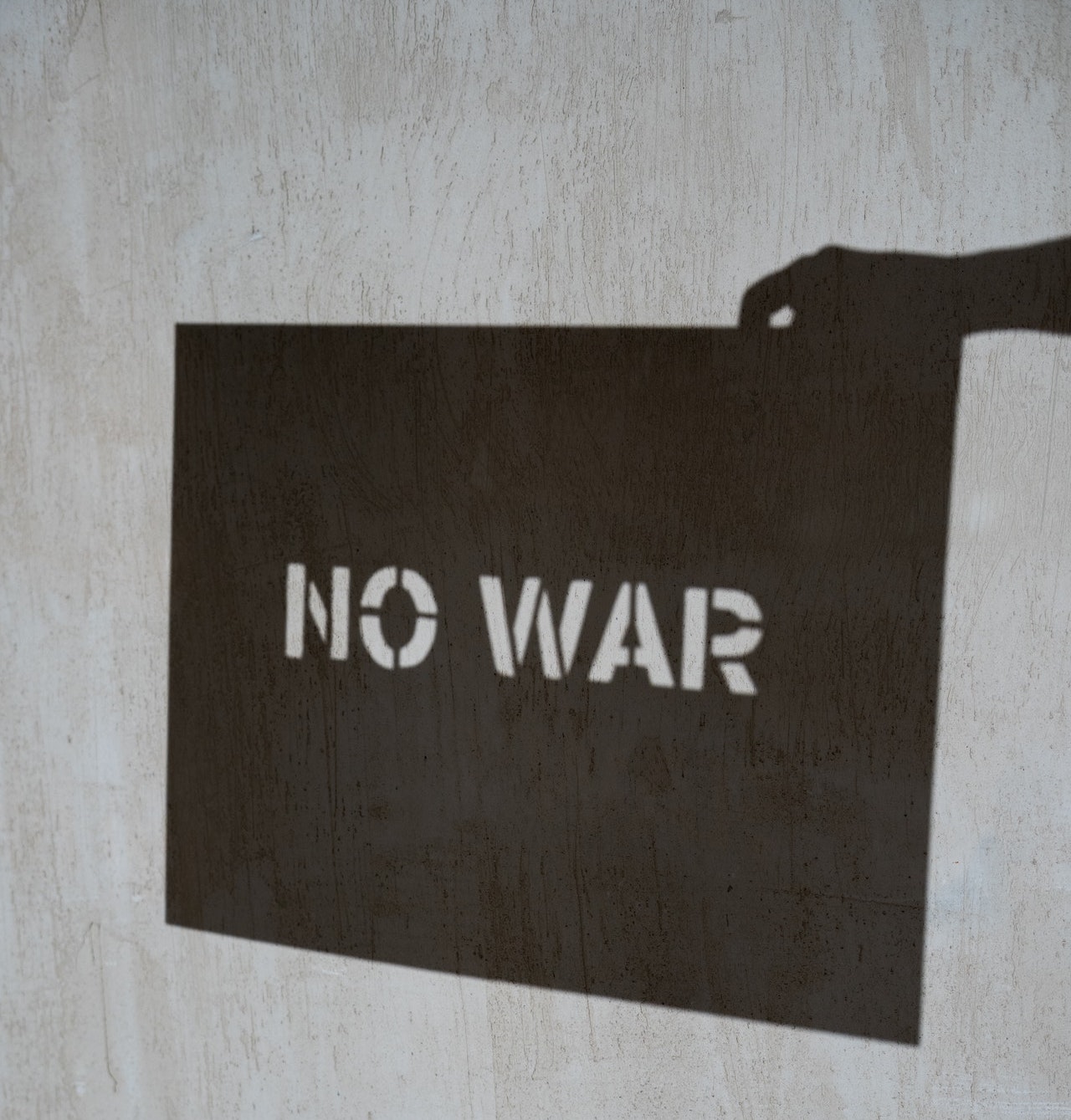Forgotten International Conflicts of the 20th Century
Forgotten International Conflicts of the 20th Century

Wars and conflicts have always played a significant role in shaping the political landscape of countries. While some conflicts like the World Wars are widely known and discussed, there are other international conflicts that have had a profound impact but have been forgotten over time. This article delves into some of the least known and discussed conflicts of the 20th century that have had a significant influence on the present-day political landscape.
The Chaco War (1932-1935)
The Chaco War was fought between Bolivia and Paraguay over the Chaco region, which was believed to have large oil reserves. The conflict started in 1932 and lasted for three years, resulting in the deaths of over 100,000 soldiers and civilians. The war ended with the Treaty of Buenos Aires, which awarded most of the disputed territory to Paraguay. The Chaco War had a significant impact on the political landscape of both Bolivia and Paraguay, leading to the overthrow of several governments and the rise of military dictatorships.
The Korean War (1950-1953)
The Korean War started in 1950 when North Korea, backed by the Soviet Union and China, invaded South Korea. The conflict escalated into a full-blown war, with the United States and its allies supporting South Korea. The war ended with a ceasefire in 1953, but the two Koreas remain divided to this day. The Korean War had far-reaching consequences, leading to the rise of Kim Il-Sung in North Korea, the establishment of the demilitarized zone between the two Koreas, and the strengthening of the United States' military presence in the region.
Wars and conflicts have always played a significant role in shaping the political landscape of countries. While some conflicts like the World Wars are widely known and discussed, there are other international conflicts that have had a profound impact but have been forgotten over time. This article delves into some of the least known and discussed conflicts of the 20th century that have had a significant influence on the present-day political landscape.
The Chaco War (1932-1935)
The Chaco War was fought between Bolivia and Paraguay over the Chaco region, which was believed to have large oil reserves. The conflict started in 1932 and lasted for three years, resulting in the deaths of over 100,000 soldiers and civilians. The war ended with the Treaty of Buenos Aires, which awarded most of the disputed territory to Paraguay. The Chaco War had a significant impact on the political landscape of both Bolivia and Paraguay, leading to the overthrow of several governments and the rise of military dictatorships.
The Korean War (1950-1953)
The Korean War started in 1950 when North Korea, backed by the Soviet Union and China, invaded South Korea. The conflict escalated into a full-blown war, with the United States and its allies supporting South Korea. The war ended with a ceasefire in 1953, but the two Koreas remain divided to this day. The Korean War had far-reaching consequences, leading to the rise of Kim Il-Sung in North Korea, the establishment of the demilitarized zone between the two Koreas, and the strengthening of the United States' military presence in the region.
The Indo-Pakistani War of 1971
The Indo-Pakistani War of 1971 was fought between India and Pakistan over the independence of East Pakistan, which later became Bangladesh. The conflict started in March 1971 and lasted for nine months, resulting in the deaths of hundreds of thousands of people. The war ended with the surrender of Pakistani forces in December 1971, and Bangladesh was established as an independent country. The war had a profound impact on the political landscape of South Asia, leading to the rise of Indira Gandhi in India and the weakening of the Pakistani military government.
The Iran-Iraq War (1980-1988)
The Iran-Iraq War was fought between Iran and Iraq over territorial disputes and religious differences. The conflict started in 1980 and lasted for eight years, resulting in the deaths of over one million people. The war ended with a ceasefire, but it left a lasting impact on the political landscape of the Middle East. The war led to the strengthening of Iran's Islamic government, the rise of Saddam Hussein in Iraq, and the start of the Gulf War.
The Rwandan Genocide (1994)
The Rwandan Genocide was a mass slaughter of Tutsi people in Rwanda that occurred over a period of 100 days from April to July 1994. The genocide was carried out by Hutu extremists in the government and military, who sought to exterminate the Tutsi minority. The conflict had its roots in the colonial era, where the Belgian colonizers had implemented ethnic divisions between Tutsis, Hutus, and Twa. The assassination of Rwandan President Juvénal Habyarimana in 1994 was the spark that ignited the genocide. The Hutu government blamed the Tutsi-led Rwandan Patriotic Front (RPF) for the assassination and used it as a pretext to incite the genocide. The conflict resulted in the deaths of approximately 800,000 Tutsi and moderate Hutu people.
The international community was slow to respond to the genocide, with the United Nations and other world powers failing to intervene until it was too late. The conflict had significant consequences for Rwanda and the African continent, with the Rwandan Patriotic Front seizing power and implementing a Tutsi-dominated government. The conflict also raised questions about the role of the international community in preventing genocide and atrocities.
These forgotten international conflicts of the 20th century may not be as widely discussed as the more famous wars, but they have had a profound impact on the present-day political landscape. They serve as a reminder that the consequences of wars and conflicts can last for generations and shape the course of history.
The Indo-Pakistani War of 1971
The Indo-Pakistani War of 1971 was fought between India and Pakistan over the independence of East Pakistan, which later became Bangladesh. The conflict started in March 1971 and lasted for nine months, resulting in the deaths of hundreds of thousands of people. The war ended with the surrender of Pakistani forces in December 1971, and Bangladesh was established as an independent country. The war had a profound impact on the political landscape of South Asia, leading to the rise of Indira Gandhi in India and the weakening of the Pakistani military government.
The Iran-Iraq War (1980-1988)
The Iran-Iraq War was fought between Iran and Iraq over territorial disputes and religious differences. The conflict started in 1980 and lasted for eight years, resulting in the deaths of over one million people. The war ended with a ceasefire, but it left a lasting impact on the political landscape of the Middle East. The war led to the strengthening of Iran's Islamic government, the rise of Saddam Hussein in Iraq, and the start of the Gulf War.
The Rwandan Genocide (1994)
The Rwandan Genocide was a mass slaughter of Tutsi people in Rwanda that occurred over a period of 100 days from April to July 1994. The genocide was carried out by Hutu extremists in the government and military, who sought to exterminate the Tutsi minority. The conflict had its roots in the colonial era, where the Belgian colonizers had implemented ethnic divisions between Tutsis, Hutus, and Twa. The assassination of Rwandan President Juvénal Habyarimana in 1994 was the spark that ignited the genocide. The Hutu government blamed the Tutsi-led Rwandan Patriotic Front (RPF) for the assassination and used it as a pretext to incite the genocide. The conflict resulted in the deaths of approximately 800,000 Tutsi and moderate Hutu people.
The international community was slow to respond to the genocide, with the United Nations and other world powers failing to intervene until it was too late. The conflict had significant consequences for Rwanda and the African continent, with the Rwandan Patriotic Front seizing power and implementing a Tutsi-dominated government. The conflict also raised questions about the role of the international community in preventing genocide and atrocities.
These forgotten international conflicts of the 20th century may not be as widely discussed as the more famous wars, but they have had a profound impact on the present-day political landscape. They serve as a reminder that the consequences of wars and conflicts can last for generations and shape the course of history.




























